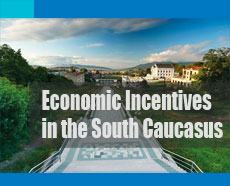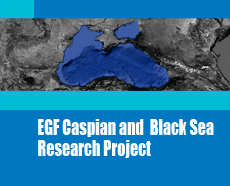
From the EGF Head of Research:
 The best ways for New Europe to mitigate the consequences of the current crisis in European affairs would entail following on the US-lead in negotiations with Russia over the war in Ukraine and opening up to discuss a new European security deal. The alternative to doing so might lead into nothing less than a major war with Russia over Eastern Europe. READ MORE
The best ways for New Europe to mitigate the consequences of the current crisis in European affairs would entail following on the US-lead in negotiations with Russia over the war in Ukraine and opening up to discuss a new European security deal. The alternative to doing so might lead into nothing less than a major war with Russia over Eastern Europe. READ MORE
News

- EU leaders meet to discuss sanctions, tariffs, and Middle East policyJune 27, 2025
- Why is NATO boosting defence spending and can Europe afford it?June 27, 2025
- Trump says US has signed trade deal with ChinaJune 27, 2025

In an exclusive interview with EU Today, Dr Marat Terterov, Founder and Director of the Brussels Energy Club, and Co-founder of the European Geopolitical Forum, outlined the key economic and geopolitical implications of the current crisis and warned against further escalation or any attempt at externally imposed regime change in Iran. According to Dr Terterov, oil prices spiked by approximately 7 percent in the immediate aftermath of the strikes—an early signal of market anxiety. Although prices have since moderated, he emphasised that this stabilisation is largely based on “bets on a ceasefire” and a broad assumption that the situation would not worsen. “Most experts believe Iran lacks the military muscle to sustain an open conflict with the United States or Israel,” he said. While Tehran has voiced outrage over the strikes—carried out during ongoing nuclear negotiations—Dr Terterov cautioned against underestimating the strategic calculus behind Iran’s actions.
READ MORE
- Thursday, 3 July 2025, 10:13
 By Elkhan NURIYEV, PhD, Senior Fellow at the Alexander von Humboldt Foundation in Berlin
By Elkhan NURIYEV, PhD, Senior Fellow at the Alexander von Humboldt Foundation in Berlin
As the war in Ukraine drags on for yet another year, a hard truth is becoming even harder to ignore: Military victory may no longer be a realistic objective for Kyiv — no matter how many billions the West sends, or how many Russian soldiers die. This isn’t a popular outlook in Washington or Brussels, where the assumption persists that enough aid and resolve will eventually break Moscow. But despite Ukraine’s extraordinary resilience and the West’s deep pockets, that outcome is looking increasingly unlikely. Rather, the war is hardening into a grinding stalemate — one that threatens to exhaust Ukraine, fracture Western unity and empower the very regime it was meant to weaken. The question Western policymakers must now confront is not whether Ukraine deserves support, but whether the current strategy is helping it win, or simply helping it survive long enough to lose more slowly. READ MORE
- Thursday, 3 July 2025, 10:12
 By Shanthie Mariet D’Souza, PhD, founder & president, Mantraya Institute for Strategic Studies (MISS)
By Shanthie Mariet D’Souza, PhD, founder & president, Mantraya Institute for Strategic Studies (MISS)
Yoga, which originated in ancient India, features many asanas (physical postures) focused on enabling the human body to find a fine balance, while stretching the limbs to achieve maximum flexibility. India uses yoga as a tool of its soft power, celebrating International Yoga Day on June 21 every year, and the present Indian foreign policy making often mirrors such asanas. When faced with stark situations such as taking sides between warring states, New Delhi tends to fall back on a balancing act, avoiding taking sides and advocating diplomacy and de-escalation. However, finding the right balance in matters of statecraft is a tough task, particularly when one side has been perceived to be favoured over the other in the past, but those warm relations are no longer the same. India’s stance on the Israel-Iran conflict contains many such contradictions. READ MORE
- Thursday, 3 July 2025, 10:11
 By Yeghia TASHJIAN, Beirut-based regional analyst and researcher, columnist, "The Armenian Weekly”
By Yeghia TASHJIAN, Beirut-based regional analyst and researcher, columnist, "The Armenian Weekly”
On June 13, Israeli Prime Minister Benjamin Netanyahu announced the launch of Operation Rising Lion, aimed at striking Iran’s nuclear facilities and missile capabilities. On the first day of the conflict, Israel targeted Iranian nuclear scientists, Iranian Revolutionary Guard Corps (IRGC) officials and later, energy infrastructure and residential areas. In response, Iran launched Operation True Promise-3, sending a missile barrage targeting key infrastructure in Israeli cities, mainly Tel Aviv and Haifa. It is worth mentioning that the Israeli operation took place just two days before the American and Iranian sides planned to hold their sixth round of nuclear talks. By striking first, Israel has blocked the door to diplomacy and now hopes to drag the United States into another regional war, as if the horrors of the 2003 Iraq invasion haven’t disappeared from the Middle East’s collective memory. READ MORE
- Wednesday, 25 June 2025, 07:39
 By Benyamin POGHOSYAN, PhD, Senior Research Fellow at the APRI Armenia
By Benyamin POGHOSYAN, PhD, Senior Research Fellow at the APRI Armenia
Profound shifts in the geopolitical dynamics of the South Caucasus, driven by the Second Nagorno-Karabakh War and the onset of the Russia-Ukraine War, have shaped the Armenian government’s pursuit of foreign policy diversification. This report analyses key developments in and around Armenian foreign policy from November 2020—the end of the Second Nagorno-Karabakh War—through March 2025. The 2020 Nagorno-Karabakh War, the onset of the Russia-Ukraine War in 2022, and Azerbaijan’s military takeover of Nagorno-Karabakh in 2023 disrupted the regional status quo. In light of the repeated incursions by Azerbaijan and in the absence of a tangible response from Russia and the Collective Security Treaty Organization, the Armenian government intensified its foreign policy diversification efforts. It sought to deepen diplomatic and military cooperation with new and existing partners, notably India, France, the EU, and the US, while opening multiple embassies worldwide.
READ MORE
- Saturday, 14 June 2025, 07:38
 By Vasif HUSEYNOV, PhD, Head of Department, AIR Center, Adjunct Lecturer, ADA and Khazar Universities, Baku
By Vasif HUSEYNOV, PhD, Head of Department, AIR Center, Adjunct Lecturer, ADA and Khazar Universities, Baku
The Informal Summit of the Organization of Turkic States (OTS), held on May 20-21, 2025, in Budapest, Hungary, marked a significant milestone in the organisation’s growing geopolitical influence. Hosted by Hungarian Prime Minister Viktor Orbán, the summit brought together leaders from Azerbaijan, Kazakhstan, Kyrgyzstan, Türkiye, and Uzbekistan, alongside observer states Hungary, Turkmenistan, and the Turkish Republic of Northern Cyprus. This gathering, the first OTS summit hosted by an observer state, underscored Hungary’s role as a bridge between the Turkic world and Europe, reflecting the theme “Meeting Point of East and West”. The summit culminated in the adoption of the Budapest Declaration, a strategic roadmap that reaffirmed the OTS’s commitment to unity, cooperation, and addressing global challenges. This event highlighted the organisation’s evolution into a formidable geopolitical player, particularly for Central Asian states and Azerbaijan, as they navigate complex regional dynamics to safeguard their independence and counter threats to their security. READ MORE
- Saturday, 14 June 2025, 07:37
 By Fuad Shahbazov, Baku-based independent regional security and defence analyst
By Fuad Shahbazov, Baku-based independent regional security and defence analyst
On May 4, an Azerbaijani delegation of state officials arrived in Damascus at the invitation of the interim Syrian government. Vice Prime Minister Samir Sharifov, who led the delegation, was received by Syria’s transitional President, Ahmad Al-Sharaa. The delegations discussed opportunities for collaboration in key areas, including the economy, energy, culture, and education. The visit followed a meeting between Al-Sharaa and Azerbaijan President Ilham Aliyev in Turkey at the Antalya Diplomacy Forum, where the two leaders explored the potential for closer ties. The growing diplomatic communication between Azerbaijan and Syria in the post-Assad period reflects Baku’s recalibrating foreign policy and pragmatic engagement with the Middle East as well as opportunities presented by the collapse of a Damascus government that had tilted toward Baku’s rival, Armenia. READ MORE
- Saturday, 24 May 2025, 12:05
- The Daily BriefJune 26, 2025
- Stratfor 2018 Second-Quarter ForecastMarch 11, 2018
- Stratfor 2018 Annual ForecastDecember 26, 2017












